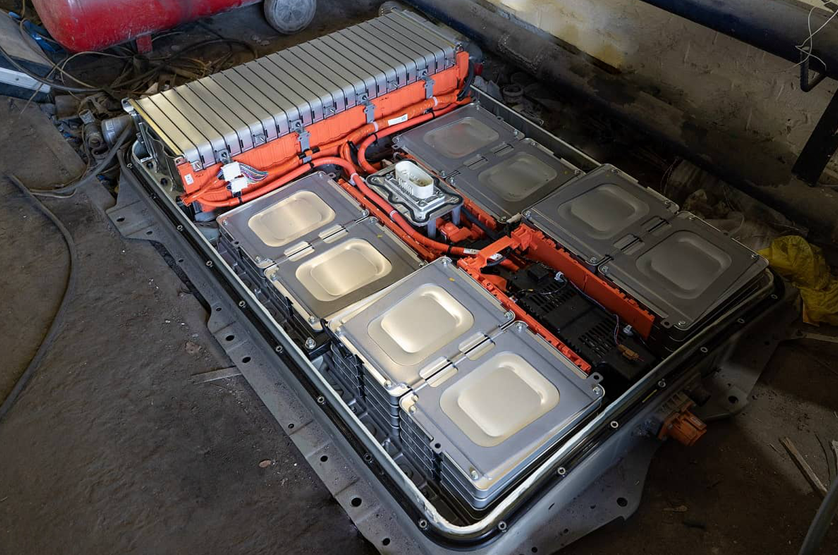Optimizing Communication Base Stations with Lithium Battery Technology
Introduction:
Communication base stations are the backbone of our modern wireless communication networks. They enable the transmission and reception of signals between mobile devices and the network infrastructure. These base stations require a reliable and efficient power source to ensure uninterrupted communication services. In recent years, lithium battery technology has emerged as a promising solution for optimizing the performance of communication base stations. This article explores the advantages of lithium batteries and how they can enhance the efficiency and reliability of communication base stations.
Advantages of Lithium Battery Technology:
1. High Energy Density: Lithium batteries offer a higher energy density compared to traditional lead-acid batteries. This means that they can store more energy in a smaller and lighter package. As a result, lithium batteries occupy less space and require fewer resources for installation, making them ideal for communication base stations where space may be limited.
2. Longer Lifespan: Lithium batteries have a longer lifespan compared to lead-acid batteries. They can withstand more charge and discharge cycles without significant degradation in performance. This extended lifespan reduces the need for frequent battery replacements, resulting in cost savings and reduced environmental impact.
3. Faster Charging: Lithium batteries can be charged at a much faster rate compared to lead-acid batteries. This is crucial for communication base stations that require a quick recharge to ensure uninterrupted power supply during peak usage periods or in the event of a power outage. Fast-charging capability minimizes downtime and improves the overall reliability of the base station.
4. Enhanced Efficiency: Lithium batteries have a higher charge/discharge efficiency compared to lead-acid batteries. This means that they can convert a higher percentage of stored energy into usable power, resulting in less energy wastage and improved overall efficiency. Enhanced efficiency translates to reduced operating costs for communication base stations.
Implementation of Lithium Battery Technology in Communication Base Stations:
1. Hybrid Power Systems: Communication base stations can benefit from hybrid power systems that combine lithium batteries with renewable energy sources such as solar panels or wind turbines. The lithium batteries store excess energy generated during periods of low demand and release it during peak demand, ensuring a stable power supply. This integration of renewable energy and lithium battery technology reduces reliance on the grid and lowers carbon emissions.

2. Intelligent Energy Management: Implementing intelligent energy management systems can optimize the performance of communication base stations powered by lithium batteries. These systems can monitor the battery status, energy consumption, and load demand in real-time, allowing for dynamic power allocation and load balancing. By intelligently managing the energy flow, the system can maximize the utilization of the lithium batteries and minimize inefficiencies.
3. Remote Monitoring and Maintenance: Lithium battery technology enables remote monitoring and maintenance of communication base stations. Through IoT-based connectivity, operators can monitor the battery health, temperature, and performance parameters from a central control center. This remote monitoring capability allows for proactive maintenance, early fault detection, and timely battery replacements, further enhancing the reliability and uptime of the base stations.
Conclusion:
Lithium battery technology offers numerous benefits for optimizing communication base stations. With their high energy density, longer lifespan, faster charging, and enhanced efficiency, lithium batteries are well-suited to meet the power demands of modern communication networks. By integrating lithium batteries into base station power systems, operators can enhance reliability, reduce operating costs, and contribute to a greener and more sustainable communication infrastructure.
-
 There has been a significant increase in the demand for portable electronic products such as smartphones, tablets, laptops, and wearable devices. These devices have become an integral part of our daily lives, providing us with convenience and connectivity on the go. One of the key components that enable these devices to function seamlessly is the lithium battery technology. Lithium...Læs mere
There has been a significant increase in the demand for portable electronic products such as smartphones, tablets, laptops, and wearable devices. These devices have become an integral part of our daily lives, providing us with convenience and connectivity on the go. One of the key components that enable these devices to function seamlessly is the lithium battery technology. Lithium...Læs mere -
 Introduction In recent years, there has been a growing demand for high-performance batteries that can provide reliable and efficient power for various applications. One such battery technology that has gained significant attention is the Lithium Iron Phosphate (LiFePO4) battery. These batteries offer numerous advantages, including high energy density, longer lifespan, and enhanced safety. To ensure optimal performance and longevity of...Læs mere
Introduction In recent years, there has been a growing demand for high-performance batteries that can provide reliable and efficient power for various applications. One such battery technology that has gained significant attention is the Lithium Iron Phosphate (LiFePO4) battery. These batteries offer numerous advantages, including high energy density, longer lifespan, and enhanced safety. To ensure optimal performance and longevity of...Læs mere -
 Introduction: In recent years, there has been a growing demand for electric vehicles (EVs) due to their environmental advantages and potential to reduce carbon emissions. One segment of the EV market that has gained significant attention is low-speed electric vehicles (LSVs). LSVs are typically used for short-distance transportation, such as within gated communities, campuses, or urban areas. This article explores...Læs mere
Introduction: In recent years, there has been a growing demand for electric vehicles (EVs) due to their environmental advantages and potential to reduce carbon emissions. One segment of the EV market that has gained significant attention is low-speed electric vehicles (LSVs). LSVs are typically used for short-distance transportation, such as within gated communities, campuses, or urban areas. This article explores...Læs mere -
 Introduction The world is experiencing a paradigm shift towards renewable energy sources as the need for sustainable solutions becomes increasingly urgent. Solar and wind energy are gaining popularity due to their clean and abundant nature. However, one significant challenge with these renewable sources is their intermittent nature, as they depend on weather conditions. To address this issue, advancements in...Læs mere
Introduction The world is experiencing a paradigm shift towards renewable energy sources as the need for sustainable solutions becomes increasingly urgent. Solar and wind energy are gaining popularity due to their clean and abundant nature. However, one significant challenge with these renewable sources is their intermittent nature, as they depend on weather conditions. To address this issue, advancements in...Læs mere -
 For locomotives, having a reliable starter battery is crucial to ensure smooth and efficient operation. The starter battery is responsible for providing the initial electrical power needed to start the engine, and without it, the locomotive would not be able to operate. There are several factors to consider when choosing a starter battery for your locomotive. One of the...Læs mere
For locomotives, having a reliable starter battery is crucial to ensure smooth and efficient operation. The starter battery is responsible for providing the initial electrical power needed to start the engine, and without it, the locomotive would not be able to operate. There are several factors to consider when choosing a starter battery for your locomotive. One of the...Læs mere -
 In the fast-paced and competitive world of manufacturing, efficiency is key to staying ahead of the competition. One often overlooked aspect of efficiency is the power source that keeps operations running smoothly. Industrial battery chargers play a vital role in powering the manufacturing sector, providing a reliable and sustainable energy solution. In this article, we will explore the benefits of...Læs mere
In the fast-paced and competitive world of manufacturing, efficiency is key to staying ahead of the competition. One often overlooked aspect of efficiency is the power source that keeps operations running smoothly. Industrial battery chargers play a vital role in powering the manufacturing sector, providing a reliable and sustainable energy solution. In this article, we will explore the benefits of...Læs mere -
 12V LiFePO4-batteriet er en kraftfuld og pålidelig energiløsning, der bliver mere og mere populær i en række forskellige applikationer. Denne type batteri er et lithium-ion-batteri, der bruger lithiumjernfosfat som katodemateriale. Sammenlignet med andre typer lithium-ion-batterier er LiFePO4-batterier kendt for deres overlegne ydeevne, sikkerhed og lang levetid. En af de vigtigste fordele...Læs mere
12V LiFePO4-batteriet er en kraftfuld og pålidelig energiløsning, der bliver mere og mere populær i en række forskellige applikationer. Denne type batteri er et lithium-ion-batteri, der bruger lithiumjernfosfat som katodemateriale. Sammenlignet med andre typer lithium-ion-batterier er LiFePO4-batterier kendt for deres overlegne ydeevne, sikkerhed og lang levetid. En af de vigtigste fordele...Læs mere

